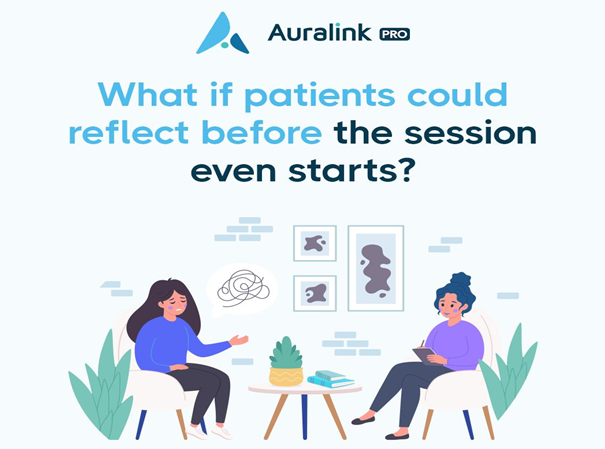Empathy lies at the core of effective psychotherapy. Understanding a client’s emotional landscape, validating experiences, and responding with sensitivity are fundamental skills for any practicing therapist. Yet, even the most experienced clinicians face challenges in navigating complex emotional dynamics, particularly when clients struggle to articulate thoughts or emotions in-session. Miscommunication, unexpressed feelings, or underlying relational tensions can obscure the real issues, requiring therapists to spend significant energy decoding emotional signals during live sessions.
Recent technological innovations offer tools to support and amplify empathic practice, not replace it. Among these, Auralink Pro, an AI copilot for therapists, has emerged as a platform designed specifically for the therapeutic process. Unlike generic AI tools that focus on administrative efficiency, Auralink Pro uses AI-guided discovery and AI-powered mediation to enhance the therapist’s ability to understand, anticipate, and respond to client emotions. Its asynchronous system, facilitated by the AI mediator Ava, allows clients to reflect privately, creating a rich pre-session foundation for therapists to engage with empathy and precision during live sessions.
This article explores how thoughtfully integrated technology can support empathic engagement, deepen clinical insight, improve outcomes, and foster stronger therapeutic alliances.
The Importance of Empathy in Therapy
Empathy is more than active listening. It involves perceiving subtle emotional cues, recognizing patterns in behavior, understanding relational dynamics, and appreciating the unique context of each client. Effective empathy allows therapists to anticipate responses, validate experiences meaningfully, and tailor interventions to the client’s needs.
However, empathy is not always effortless. Several factors can challenge its consistent application:
- Clients may struggle to articulate complex emotions, leaving therapists to infer meaning from incomplete signals.
- Session time constraints can limit the therapist’s ability to explore underlying emotional layers fully.
- Emotional tensions within couples or family dynamics may obscure each individual’s true perspective, increasing the risk of misinterpretation.
AI tools designed for clinical reflection, such as Auralink Pro, can complement empathic practice by helping therapists anticipate emotional shifts, uncover recurring patterns, and identify relational dynamics that might otherwise be missed. By providing structured insights prior to live sessions, AI enables therapists to enter with a nuanced understanding of the client’s perspective, strengthening empathic engagement and reducing the time spent decoding in-session behaviors.
Ultimately, this approach transforms therapy from reactive problem-solving to a proactive, insight-driven practice, where empathy is not just expressed but guided by informed awareness.
Guided Reflection: Deepening Emotional Awareness
Structured reflection between sessions is a critical mechanism through which AI enhances empathy. In Auralink Pro, clients engage asynchronously with Ava, the AI mediator, in a private, supportive environment. This allows them to articulate emotions, explore key issues, and gain self-insight without the immediate pressure of face-to-face interaction.
The platform offers several tangible benefits for both clients and therapists:
- Psychological Safety: Clients can share openly without fear of judgment or confrontation, fostering authentic self-expression.
- Clarity of Expression: Reflection helps clients identify core emotions, sort through complex experiences, and organize thoughts ahead of therapy sessions.
- Enhanced Insight for Therapists: Summaries generated by the platform highlight recurring patterns, emotional priorities, and potential areas for intervention, providing therapists with actionable insight before sessions begin.
By facilitating structured pre-session reflection, Auralink Pro allows therapists to respond with heightened sensitivity, addressing not only the explicit content of client communication but also the underlying emotional context. This approach encourages therapists to focus on meaningful interventions rather than spending in-session time decoding unspoken feelings.
Understanding Patterns and Attachment Dynamics
Empathy is strengthened when therapists can recognize recurring emotional patterns, relational cycles, and attachment dynamics. These insights are often difficult to capture in real-time during sessions, especially when dealing with complex family systems or clients with multiple co-occurring concerns. AI tools like Auralink Pro allow therapists to visualize these patterns over time, providing a longitudinal perspective on client behavior, relational dynamics, and emotional shifts.
For example, longitudinal data might reveal that a client consistently avoids discussing specific topics in early sessions, suggesting underlying anxiety or unresolved trauma. Similarly, patterns in emotional expression across couples sessions can illuminate recurring conflicts, revealing attachment cycles that may drive relational tension. By presenting this information in a structured, actionable format, Auralink Pro equips therapists to intervene thoughtfully and empathetically, anticipating challenges rather than reacting in the moment.
Additionally, the platform’s analysis helps therapists identify alignment shifts between client expectations and therapeutic goals. Recognizing these shifts early allows clinicians to recalibrate interventions, ensuring that sessions remain productive and focused on meaningful progress.
Perspective 360: Seeing the Client’s World Clearly
A central challenge in empathic practice is understanding multiple perspectives within relational or systemic dynamics. Individuals within the same session may perceive events differently, creating potential for miscommunication, defensiveness, or emotional escalation. Auralink Pro addresses this challenge through Perspective 360, a tool that condenses each client’s viewpoint into structured, clinically relevant insights.
By providing accurate representations of each party’s perspective, identifying potential emotional blocks, and distilling complex relational data into actionable summaries, therapists gain a comprehensive understanding of client experiences. This capability is particularly valuable in couples therapy or family work, where differing perceptions can heighten tension.
Perspective 360 allows therapists to navigate these dynamics with greater clarity, reducing interpretive bias, maintaining emotional attunement, and enabling interventions that honor each client’s perspective while fostering mutual understanding. This contributes to more empathic engagement and a smoother, more productive session experience.
Enhancing Therapeutic Alliance Through Pre-Session Insight
The therapeutic alliance is a well-documented predictor of treatment outcomes. The stronger the connection between client and therapist, the more likely therapy is to succeed. AI-assisted reflection, as provided by Auralink Pro, allows therapists to enter sessions with pre-established insight, significantly enhancing alliance formation.
Pre-session insight allows therapists to focus on meaningful interventions rather than spending time navigating initial confusion or unspoken tension. When therapists have awareness of emotional patterns, priorities, and potential challenges, they can respond with precision, validate client experiences effectively, and maintain empathic engagement throughout the session.
Clients benefit as well, experiencing a sense of being truly seen and understood, which fosters trust, engagement, and continuity in therapy. Over time, this pre-session preparation can lead to measurable improvements in client retention, session productivity, and overall treatment outcomes.
Ethical Integration of AI in Empathic Practice
While AI tools offer enormous potential, ethical integration remains critical. Therapists must prioritize client privacy, data integrity, and clinical autonomy. Platforms like Auralink Pro are HIPAA-compliant, use end-to-end encryption, and maintain strict access controls. Session data is never used to train AI models, ensuring confidentiality and preserving trust.
Moreover, Auralink Pro is designed to support rather than replace clinical judgment. The therapist remains the central agent of insight, interpretation, and intervention. AI serves as an augmentative tool, providing structured reflection, highlighting patterns, and enabling pre-session preparation without supplanting the therapeutic relationship.
Thoughtful integration ensures that technology amplifies empathy without compromising professional ethics or the human-centered nature of psychotherapy.
Practical Applications in Clinical Practice
Auralink Pro’s tools support empathy across a range of clinical contexts. In individual therapy, clients articulate complex emotions privately, allowing therapists to enter sessions with clear insight into emotional states. In couples therapy, asynchronous reflection reduces tension by providing each partner with a safe space to communicate, preparing the therapist to mediate effectively. Longitudinal tracking and pattern recognition enable proactive intervention, allowing clinicians to anticipate emotional shifts and relational dynamics over time.
By combining structured reflection with data-driven insights, therapists can enhance the depth and quality of empathic engagement, applying informed interventions while maintaining responsiveness to client needs in real-time.
Measuring the Impact on Client Outcomes
Empathy is both an ethical and practical determinant of therapeutic success. AI-assisted reflection helps surface core issues early, allowing interventions to target root causes rather than symptoms. Clients feel heard, understood, and validated, reducing dropout risk and enhancing retention. Structured reflection also promotes client self-awareness, empowering them to recognize patterns in their own behavior and emotional responses, which supports active participation in therapy.
Over time, these processes contribute to measurable improvements in therapeutic outcomes, demonstrating the tangible value of integrating AI tools like Auralink Pro into practice.
Building a Smart, Empathy-Centered Practice
Incorporating AI into therapy is not about replacing human empathy; it is about leveraging technology to deepen it. Auralink Pro illustrates how thoughtfully designed AI tools can enhance understanding of client emotions, provide structured insights without intruding on therapeutic interaction, reduce in-session time spent on decoding emotions, and allow therapists to focus on clinical expertise and intervention strategy.
For psychotherapists committed to ethical technology integration, AI copilots represent a pathway to a smarter, more empathically attuned practice, where clinical judgment and human connection remain central, but are augmented by data-driven insight and reflective support.
Conclusion
Empathy remains the cornerstone of effective therapy, yet the demands of modern clinical practice often challenge therapists’ capacity to perceive and respond to client emotions fully. Auralink Pro, an AI copilot for therapists, offers a solution that enhances empathic practice without compromising clinical integrity. By enabling structured reflection, highlighting patterns, and providing actionable insights before sessions, the platform allows therapists to engage with clients in a more nuanced, sensitive, and effective manner.
For clinicians seeking to integrate technology thoughtfully, AI tools like Auralink Pro demonstrate how the art of empathy can be complemented by the science of insight, creating richer therapeutic experiences and more robust client outcomes.


